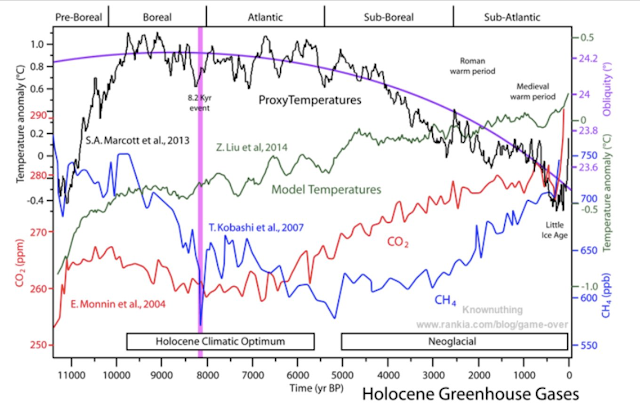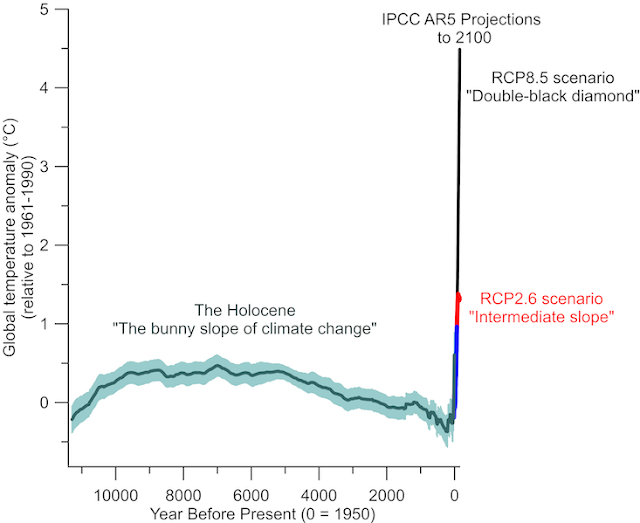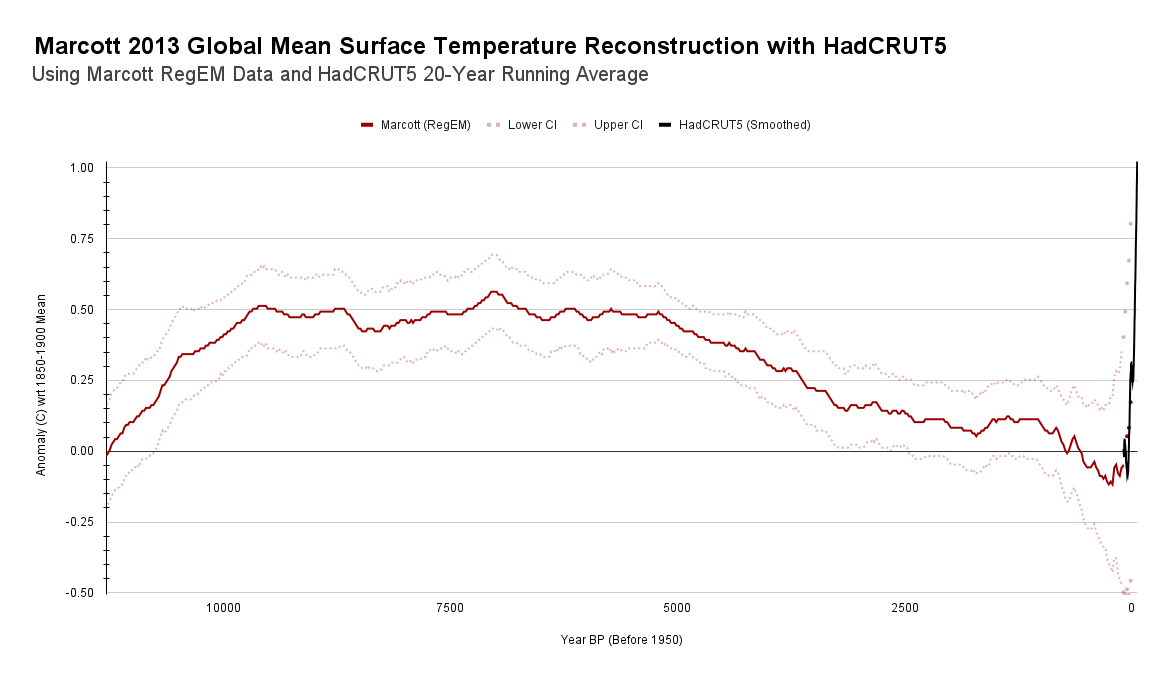Data Tampering of Marcott by Javier Vinós

The graph above (and similar versions of it) is circulating widely on social media and promoted as evidence that the Holocene Thermal Maximum (HTM) between 5000 and 10,000 years ago was warmer than today. The graph originates from Javier Vinós' self-published book. In the graph above the black "b" time series is reported to be variability of global temperatures since the beginning of the Holocene. This particular version also shows Marcott et al 2013 as the "a" time series and Earth's obliquity as the "c" time series. My interest here has to do with the data tampering Vinós used to generate the black "b" time series, so I'm going to refer to this as the "Vinós time series." The Vinós time series is fabricated by tampering with Marcott's proxy data. In his self-published book and various blogposts, he has told us how he fabricated it. To see how he did so, we must first look at a version of this graph in which the Vinós t...
.png)



